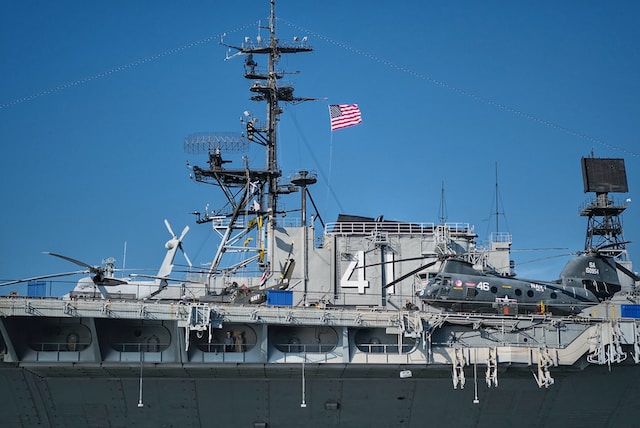In an unprecedented turn of events, the United States Navy has made history by joining the Army and Marine Corps in a unique circumstance – the absence of a Senate-confirmed leader. This development marks a significant moment in the country’s military history and has generated substantial interest and debate. In this article, we delve into the details of this historic situation, exploring its implications and possible reasons behind it.
No Senate-Confirmed Leadership in the US Navy: As the backbone of the nation’s maritime defense, the United States Navy plays a vital role in safeguarding national interests and ensuring global security. However, recent developments have left the Navy without a Senate-confirmed leader, a scenario mirrored by the Army and Marine Corps. This alignment of circumstances has never before occurred in American history, making it a subject of both intrigue and concern.
The Importance of Senate Confirmation: The requirement for Senate confirmation of top military leaders is rooted in the Constitution, designed to maintain a system of checks and balances and prevent the undue concentration of power. This process ensures that individuals entrusted with leading the armed forces have the necessary qualifications, experience, and judgment to make crucial decisions affecting national security. The absence of such a confirmation can lead to leadership uncertainties and potential challenges in maintaining effective military operations.
Possible Reasons Behind the Leadership Vacuum: Several factors may contribute to the lack of Senate-confirmed leaders across these branches of the military. One prominent reason is the complex and often contentious nature of the confirmation process itself. Political disagreements, partisan considerations, and even individual objections can delay or derail the confirmation of nominees. Additionally, the evolving landscape of global security and the multifaceted challenges faced by the military may also influence the decision-making process.
Implications for National Defense: The absence of Senate-confirmed leaders in the US Navy, Army, and Marine Corps raises concerns about the continuity and effectiveness of military operations. Leadership vacuums can potentially impact decision-making, strategic planning, and coordination among branches. National defense relies heavily on a cohesive and well-structured chain of command, making the presence of confirmed leaders essential for maintaining stability and preparedness.
Addressing the Issue: To ensure the optimal functioning of the military and to address the leadership vacuum, it is crucial for the government and Pentagon officials to work collaboratively. Identifying and nominating capable individuals who can garner bipartisan support and efficiently navigate the confirmation process is paramount. Swift action is necessary to mitigate any potential disruptions to military operations and to reinforce the nation’s commitment to national security.
Conclusion: The historic occurrence of the United States Navy, Army, and Marine Corps simultaneously lacking Senate-confirmed leaders highlights the intricacies of military leadership and governance. This unprecedented situation calls for careful consideration, swift action, and a renewed dedication to maintaining the integrity of the nation’s defense systems. As the government and military officials work together to address this issue, the nation watches closely, recognizing the importance of a strong and stable leadership structure in times of uncertainty.












